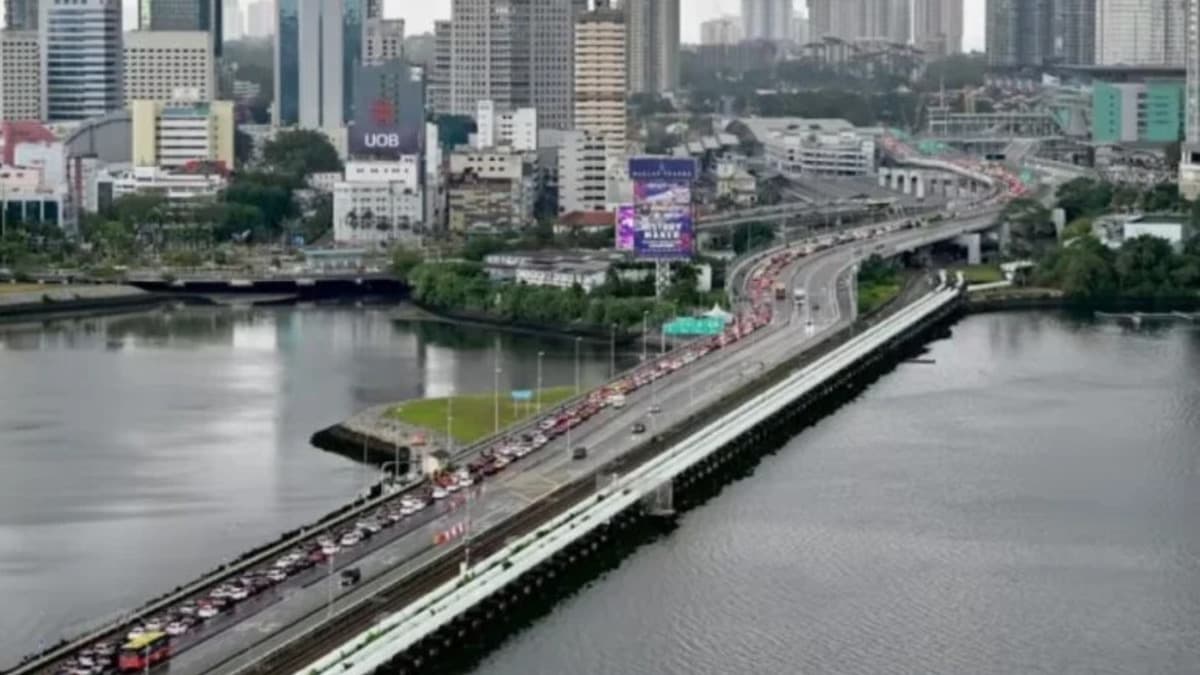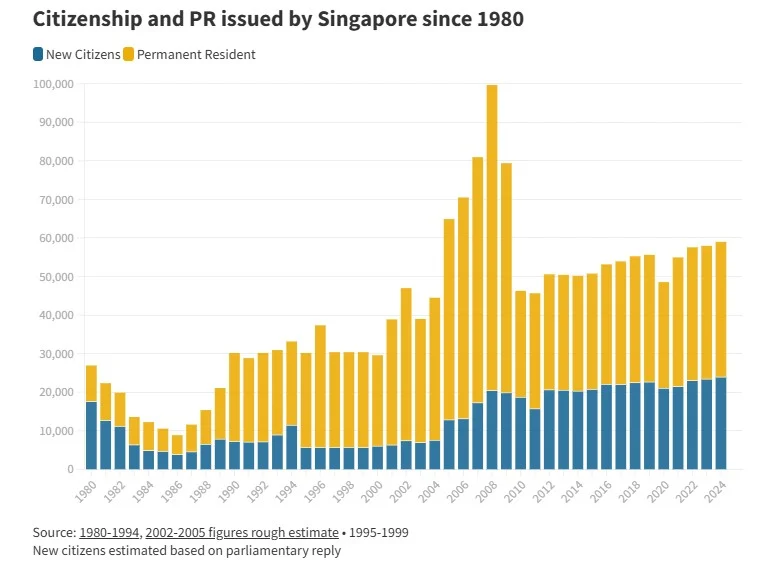Over 98,000 Malaysians renounce citizenship to become Singaporeans from 2015 to mid-2025
More than 98,000 Malaysians have given up their citizenship between 2015 and June 2025 to obtain Singapore citizenship, with 2024 recording the highest number at 16,930, according to Malaysia’s Home Minister Datuk Seri Saifuddin Nasution Ismail.

- From 2015 to mid-2025, 98,318 Malaysians renounced their citizenship to obtain Singapore citizenship, with 2024 marking a record high.
- Malaysian Home Minister Saifuddin Nasution revealed the figures in Parliament on 7 August 2025 in response to a query from opposition MP Takiyuddin Hassan.
- Singapore granted 23,472 new citizenships in 2023, with about one-fifth under the Family Ties Scheme.
KUALA LUMPUR, MALAYSIA: More than 98,000 Malaysians have renounced their citizenship over the past decade to become Singapore citizens, according to figures disclosed by Malaysia’s Home Minister Datuk Seri Saifuddin Nasution Ismail in Parliament on 7 August 2025.
The revelation came in response to a question from opposition Member of Parliament Datuk Seri Takiyuddin bin Hassan, who asked for the number of Malaysians applying for Singapore citizenship between 2015 and 2025.
Saifuddin reported that a total of 98,318 Malaysians had surrendered their nationality from 2015 until June 2025.
2024 sees record number of Malaysians giving up citizenship
The data showed that 2024 recorded the highest number of Malaysians renouncing their citizenship, with 16,930 individuals doing so.
By comparison, 2019 saw 13,362 renunciations, while 2023 registered 11,500. The first half of 2025 had already seen 6,060 Malaysians giving up their nationality to take up Singapore citizenship.
Annual breakdown of citizenship renunciations
| Year | Number of Malaysians who renounced citizenship for Singapore citizenship |
|---|---|
| 2015 | 7,394 |
| 2016 | 8,654 |
| 2017 | 7,583 |
| 2018 | 7,665 |
| 2019 | 13,362 |
| 2020 | 5,591 |
| 2021 | 7,956 |
| 2022 | 5,623 |
| 2023 | 11,500 |
| 2024 | 16,930 |
| 2025 (as of 30 June) | 6,060 |
| Total: 98,318 |
Saifuddin’s disclosure underscored a continuing trend of Malaysians emigrating to Singapore, particularly professionals and skilled workers seeking economic opportunities and a higher standard of living.
Growing demand for Singapore citizenship
According to Singapore’s National Population and Talent Division (NPTD), 23,472 individuals were granted Singapore citizenship in 2023.
Between 2019 and 2023, Singapore conferred citizenship on 111,890 individuals — an average of 22,400 per year. This figure was slightly higher than the 21,600 annual average recorded from 2014 to 2018.
The number of new citizenships granted in 2024 has not yet been published.
Citizenship profile and family ties
In 2023, Singapore’s Ministry of Home Affairs reported that 2,776 of the new citizens were aged 21 to 30, while 6,150 were aged 31 to 40.
About 20 per cent of all new citizenships were granted under the Family Ties Scheme, which primarily covers foreign spouses of Singapore citizens.
This figure was confirmed in a written parliamentary reply on 7 January 2025 by Home Affairs Minister K. Shanmugam to then-Member of Parliament Gan Thiam Poh.
Broader demographic implications
Observers have noted that the continued outflow of Malaysians to Singapore — many of them young professionals — reflects a broader regional mobility pattern driven by wage differentials, job opportunities, and educational prospects.
Singapore’s per capita income and employment stability have long been key attractions, particularly for Malaysians residing in Johor and other southern states.
Conversely, Malaysia continues to grapple with the long-term effects of brain drain, with thousands of its citizens working or settling permanently abroad each year.
The Malaysian government has previously said it aims to retain and attract skilled talent through various incentive schemes and reforms, though officials acknowledge that reversing emigration trends remains challenging.
Bilateral context and population dynamics
Singapore’s approach to maintaining a sustainable population through measured immigration policies has also shaped the cross-border demographic exchange.
New citizens in Singapore are expected to contribute to the country’s economic resilience and social cohesion, particularly as the native-born population ages.
Between 2019 and 2023, Singapore’s average annual grant of 22,400 citizenships complemented its strategy of drawing foreign professionals and integrating long-term residents, including Malaysians who already work in the city-state.
The figures released by both governments provide a clearer view of how migration continues to redefine economic and social linkages between the two neighbours.








